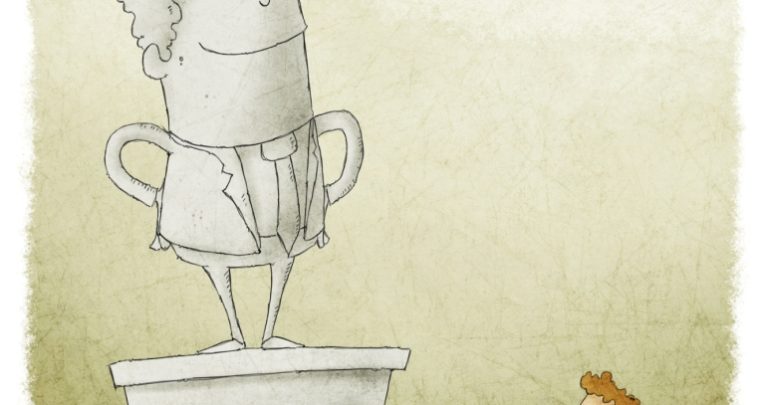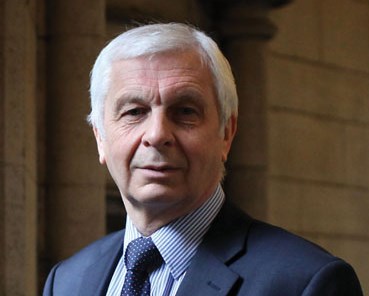Mick Waters: “Let’s get the role of Ofsted in perspective”

Let’s stop talking about statues and start to inspect the inspectorate, says Mick Waters… Last year Sir Michael Wilshaw suggested that great headteachers who improve standards in their own schools and in weaker neighbouring ones deserve to have statues or monuments erected in their honour. He compared the best headteachers with the great inventors and […]

- by Mick Waters

Let’s stop talking about statues and start to inspect the inspectorate, says Mick Waters…
Last year Sir Michael Wilshaw suggested that great headteachers who improve standards in their own schools and in weaker neighbouring ones deserve to have statues or monuments erected in their honour. He compared the best headteachers with the great inventors and scientists of the industrial revolution. He made those comments at the launch of Ofsted’s new common inspection framework, which it described as a ‘radical reform’. Now, schools that need radical reform are usually described as ‘failing’ – but not Ofsted. The inspectorate said that it needed to change (again) because of its track record of success since the early 1990s. When Ofsted first started carrying out mass evaluations, its strapline was ‘Improvement through inspection’. Yet there are examples of schools that have been inspected on nine occasions, which still find themselves in a category below ‘good’.
A more human approach
As well making all inspectors based ‘in house’, as opposed to being run through agencies, Ofsted has also responded to criticisms about the inconsistency of inspectors by establishing scrutiny committees. We’ve been promised shorter and more frequent inspections for ‘good’ schools, and the starting assumption will be that the school is good. This will apparently engender an atmosphere in which honest, challenging, professional dialogue can take place.
Ofsted’s other move of including serving headteachers among its inspection teams is surely a good one – but to build real professional respect, Ofsted should also require, as a condition of registration, that all school inspectors much teach for a minimum of half a term each year. Not just ‘spend time in a school’, but actually teach – full time and paid. It might lead to a more human approach with a little more humility. It would also probably result in fewer inspectors. Poor Ofsted. It seems so unfair to criticise its attempts to respond and improve; damned if it does…Yet it has been a rotten organisation for a long while, and will have to work hard to build real respect.
Sean Harford, Ofsted’s National Director, Education, has put a great deal of effort into developing and communicating these changes. He has argued there is no reasonable alternative to inspection as a way of judging the effectiveness of schools – that without inspection we would be relying on the data of test results. Yet a repeated complaint in recent years is that Ofsted teams build hypotheses on data to be proved during the school visit, thus achieving consistency and securing the next contract. For a long time now, Ofsted has rejected claims that its inspectors are inconsistent and expressed surprise at the notion that schools might ‘Play the system’ to confuse the inspector. On the very day that Sir Michael was launching the new framework, the government’s then newly-appointed ‘behaviour tsar’, Tom Bennett, explained how some schools deceive Ofsted.
Given that Ofsted reports behaviour as ‘good’ or ‘outstanding’ in the vast majority of schools, it seems even Nicky Morgan has doubts about the inspectorate’s validity in this area. One big area of potential improvement and confidence building yet to be addressed is that Ofsted continues to investigate its own complaints – surely that cannot be right.
Power plays and games
To what extent school inspection will become more professional remains to be seen. As one head remarked to me at the time of the common inspection framework launch, ‘I agree with accountability, but cannot agree with the power plays and the games that have to be played.’ Inspectors’ judgements can be career-changing for heads and teachers; the new shorter inspections will focus on the quality of leadership, upping the pressure further still. Sir Michael Wilshaw has, however, pledged to recognise exceptional headteachers and principals. Ofsted will now send letters to those leaders who have had a big impact on their school, and as previously noted, Sir Michael has mooted the possibility of some having “Monuments and statues built to them in towns, cities and market squares across the country”.
That sounds a fine sentiment, but there are pitfalls. In Birmingham, for instance, it would have been a case of ‘Statues up / Statues down’, with a Trojan horse towing them away. And whilst some people might like to practise holding their pose, most heads have no need of a statue or a letter. Banner headlines and billboards about inspection outcomes have done little good for schools. Let’s get inspection in perspective. It is a way of checking that a school is good enough. No more than that.
Mick Waters is Professor of Education at Wolverhampton University; the subject of inspection is addressed in his book, Thinking Allowed on Schooling











